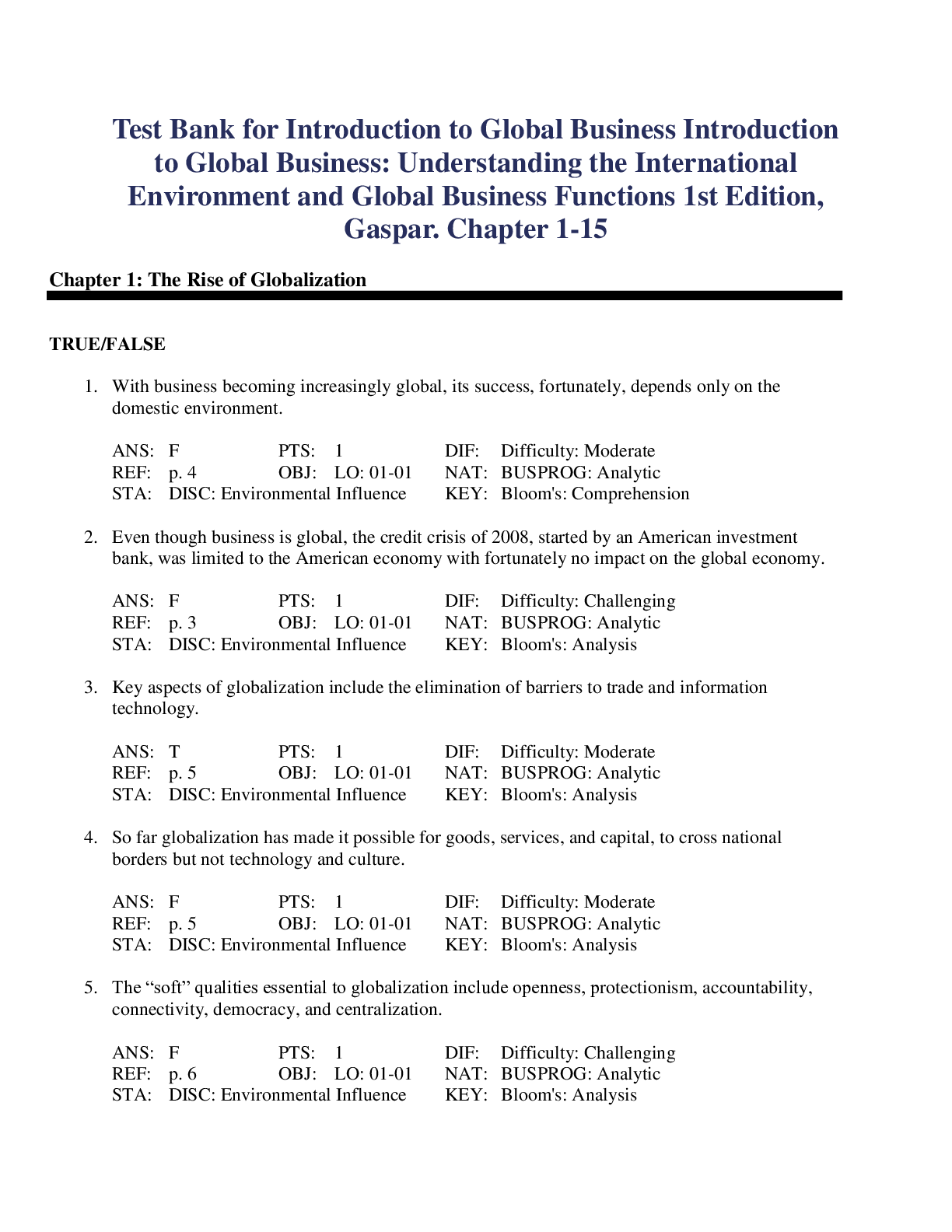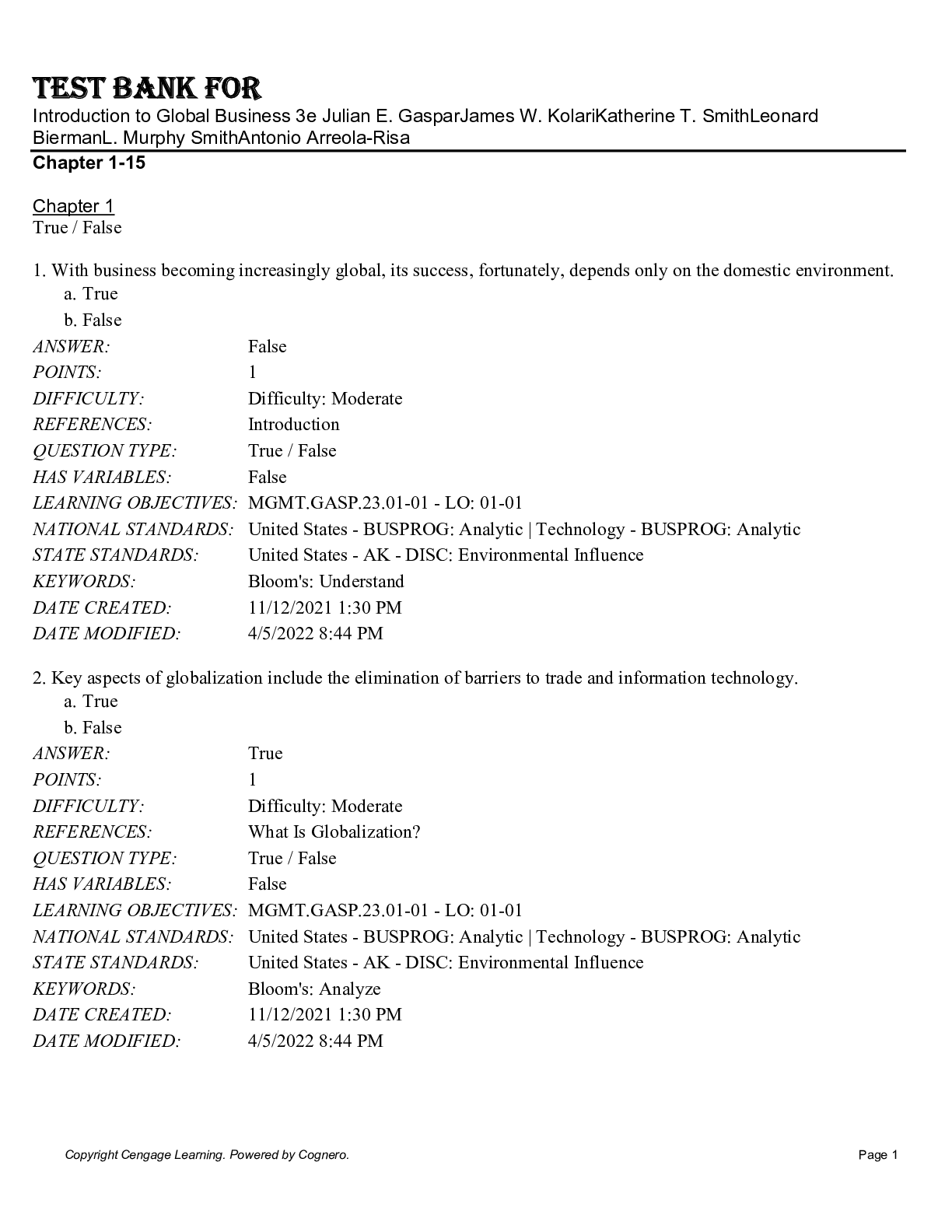nr 508 test bank pharmacology.
Document Content and Description Below
1. Which of the following has influenced an emphasis on primary care education in medical schools? a. Changes in Medicare reimbursement methods recommended in 1992 b. Competition from nonphysician... s desiring to meet primary care shortages c. The need for monopolistic control in the marketplace of primary outpatient care d. The recognition that nonphysicians have variable success providing primary care ANS: A The Physician Payment Review Commission in 1992 directly increased financial reimbursement to clinicians who provide primary care. Coupled with a shortage of primary care providers, this incentive led medical schools to place greater emphasis on preparing primary care physicians. Competition from nonphysicians increased coincidentally as professionals from other disciplines stepped up to meet the needs. Nonphysicians have had increasing success at providing primary care and have been shown to be safe and effective. DIF: Cognitive Level: Remembering (Knowledge) REF: 2 2. Which of the following statements is true about the prescribing practices of physicians? a. Older physicians tend to prescribe more appropriate medications than younger physicians. b. Antibiotic medications remain in the top five classifications of medications prescribed. c. Most physicians rely on a “therapeutic armamentarium” that consists of less than 100 drug preparations per physician. d. The dominant form of drug information used by primary care physicians continues to be that provided by pharmaceutical companies. ANS: D Even though most physicians claim to place little weight on drug advertisements, pharmaceutical representatives, and patient preference and state that they rely on academic sources for drug information, a study showed that commercial rather than scientific sources of drug information dominated their drug information materials. Younger physicians tend to prescribe fewer and more appropriate drugs. Antibiotics have dropped out of the top five classifications of drugs prescribed. Most physicians have a therapeutic armamentarium of about 144 drugs. DIF: Cognitive Level: Remembering (Knowledge) REF: 3 3. As primary care nurse practitioners (NPs) continue to develop their role as prescribers of medications, it will be important to: a. attain the same level of expertise as physicians who currently prescribe medications. b. learn from the experiences of physicians and develop expertise based on evidencebased practice. c. maintain collaborative and supervisorial relationships with physicians who will oversee prescribing practices. d. develop relationships with pharmaceutical representatives to learn about new medications as they are developed. ANS: B As nonphysicians develop the roles associated with prescriptive authority, it will be important to learn from the past experiences of physicians and to develop prescribing practices based on evidence-based medicine. It is hoped that all prescribers, including physicians and nurse practitioners, will strive to do better than in the past. NPs should work toward prescriptive authority and for practice that is not supervised by another professional. Pharmaceutical representatives provide information that carries some bias. Academic sources are better. DIF: Cognitive Level: Applying (Application) REF: 4 Chapter 02: Historical Review of Prescriptive Authority: The Role of Nurses (NPs, CNMs, CRNAs, and CNSs) and Physician Assistants Test Bank MULTIPLE CHOICE 1. A primary care NP will begin practicing in a state in which the governor has opted out of the federal facility reimbursement requirement. The NP should be aware that this defines how NPs may write prescriptions: a. without physician supervision in private practice. b. as CRNAs without physician supervision in a hospital setting. c. in any situation but will not be reimbursed for this by government insurers. d. only with physician supervision in both private practice and a hospital setting. ANS: B In 2001, the Centers for Medicare and Medicaid Services changed the federal physician supervision rule for CRNAs to allow state governors to opt out, allowing CRNAs to write prescriptions and dispense drugs without physician supervision. DIF: Cognitive Level: Understanding (Comprehension) REF: 9 2. CRNAs in most states: a. must have a Drug Enforcement Administration (DEA) number to practice. b. must have prescriptive authority to practice. c. order and administer controlled substances but do not have full prescriptive authority. d. administer medications, including controlled substances, under direct physician supervision. ANS: C Only five states grant independent prescriptive authority to CRNAs. CRNAs do not require prescriptive authority because they dispense a drug immediately to a patient and do not prescribe. Without prescriptive authority, they do not need a DEA number. DIF: Cognitive Level: Understanding (Comprehension) [Show More]
Last updated: 11 months ago
Preview 1 out of 224 pages
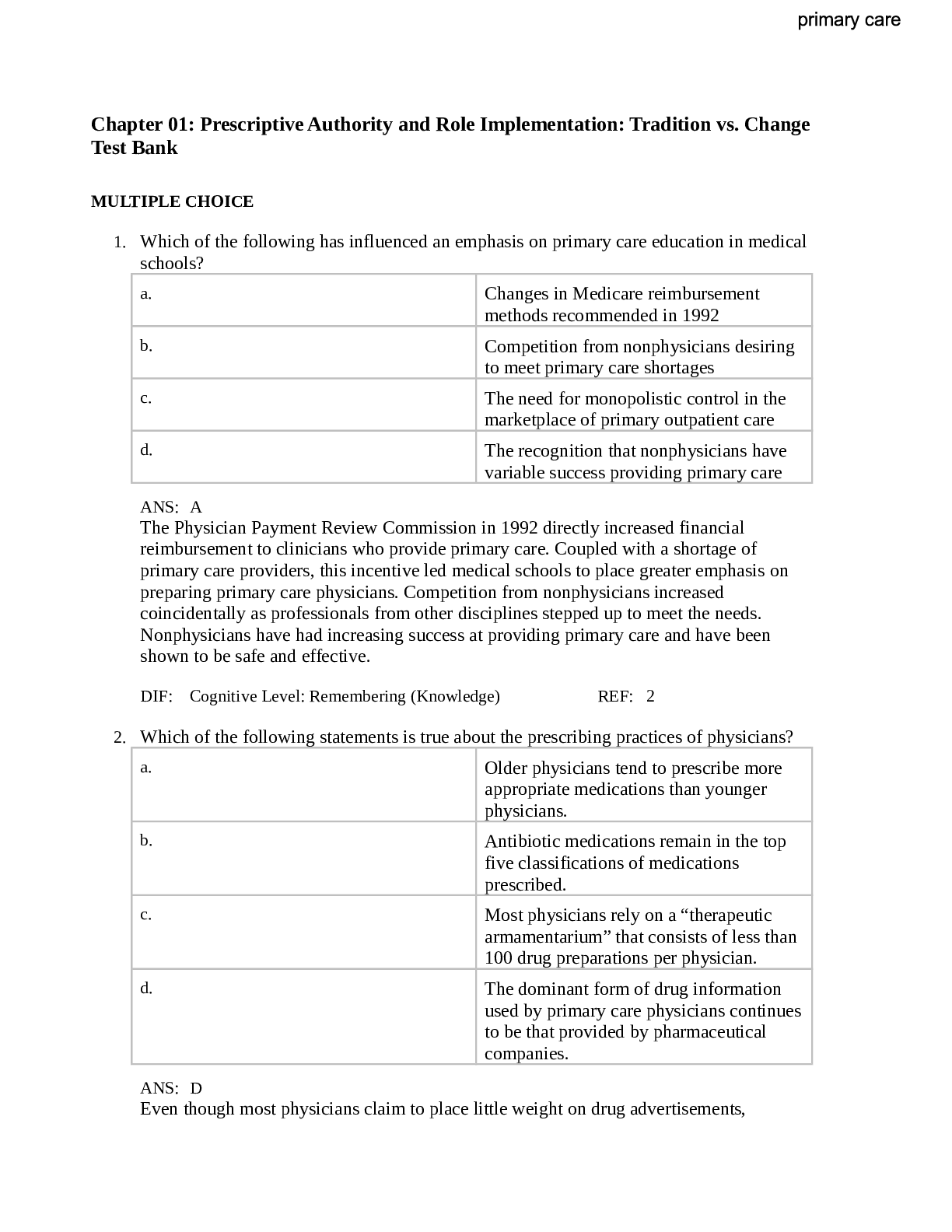
Reviews( 0 )
Document information
Connected school, study & course
About the document
Uploaded On
Mar 05, 2022
Number of pages
224
Written in
Additional information
This document has been written for:
Uploaded
Mar 05, 2022
Downloads
0
Views
70




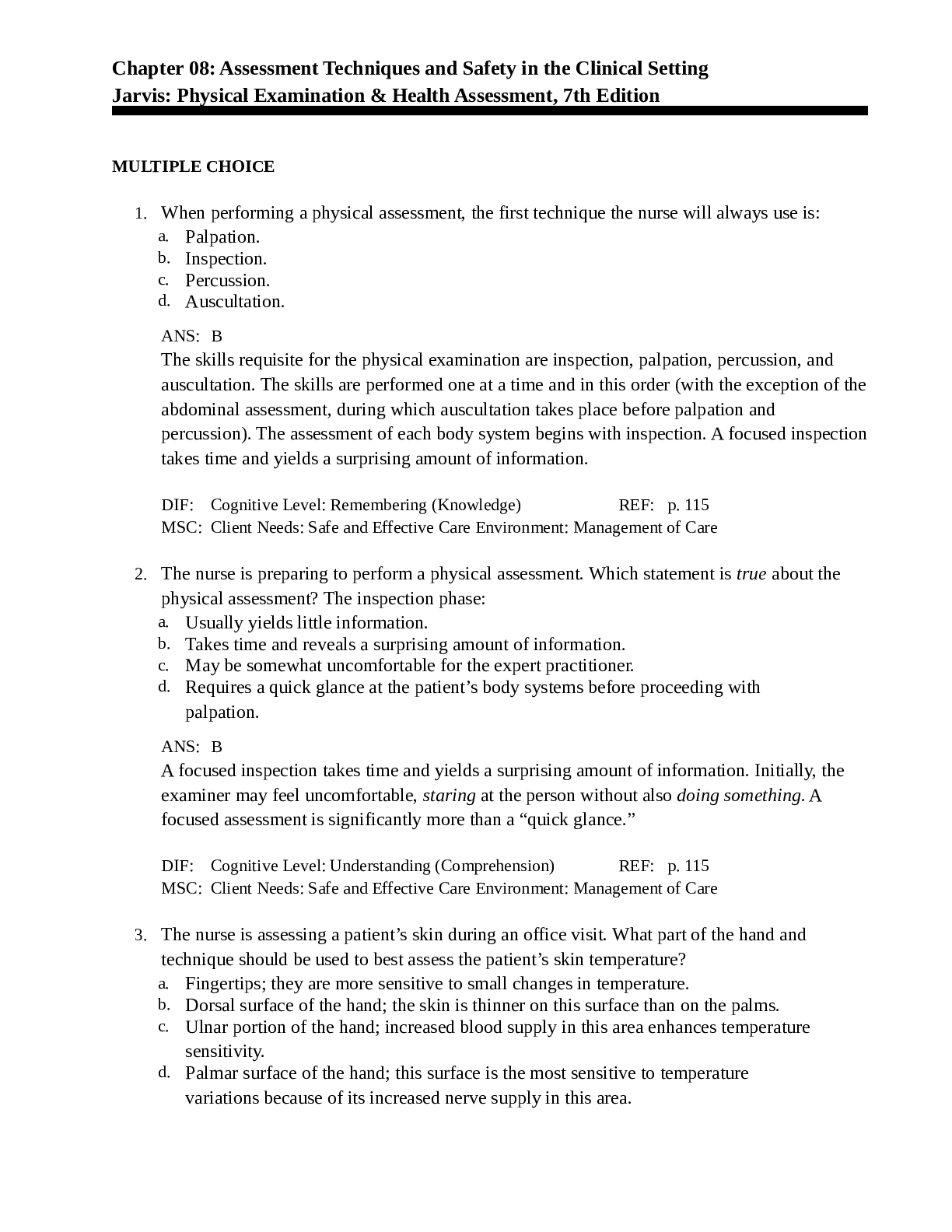
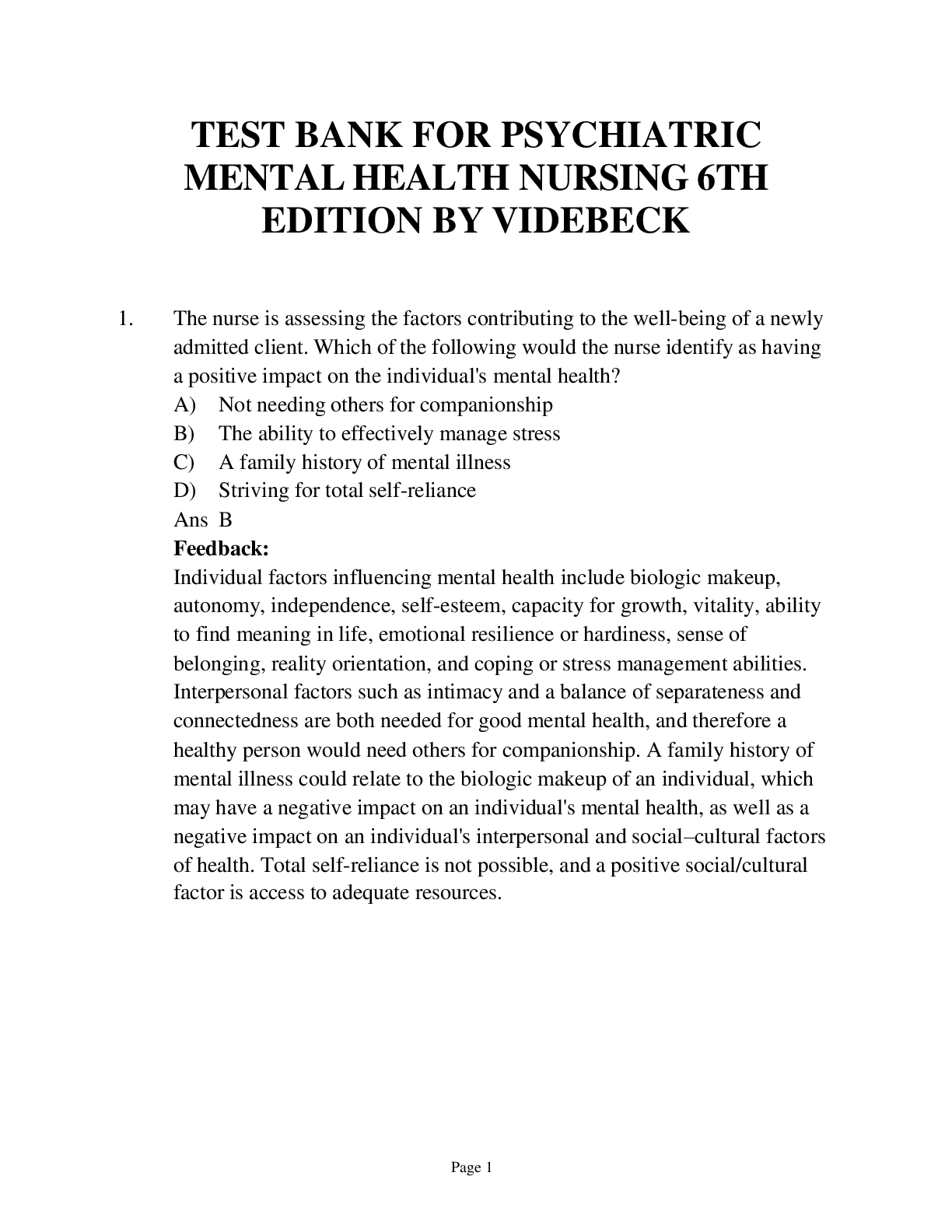


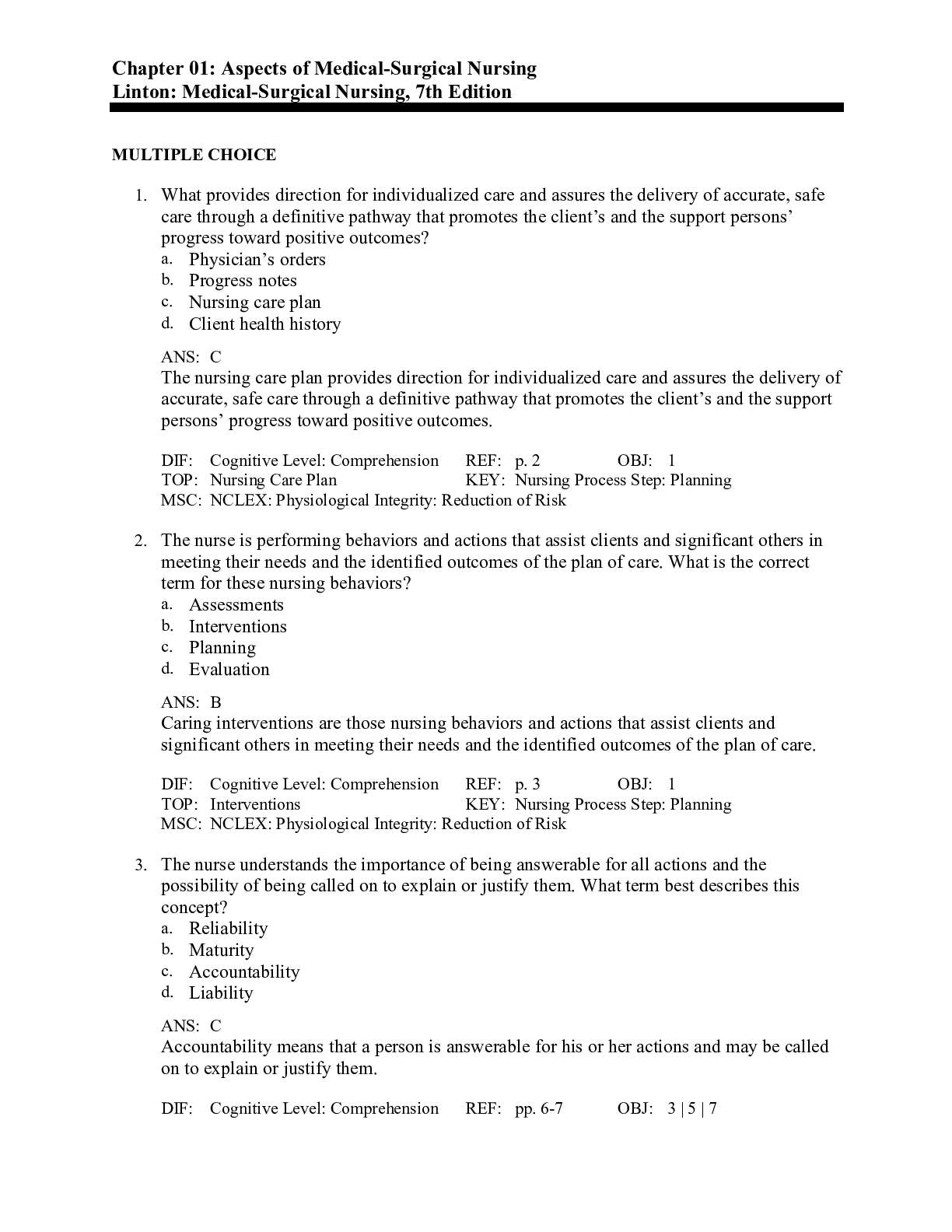




.png)
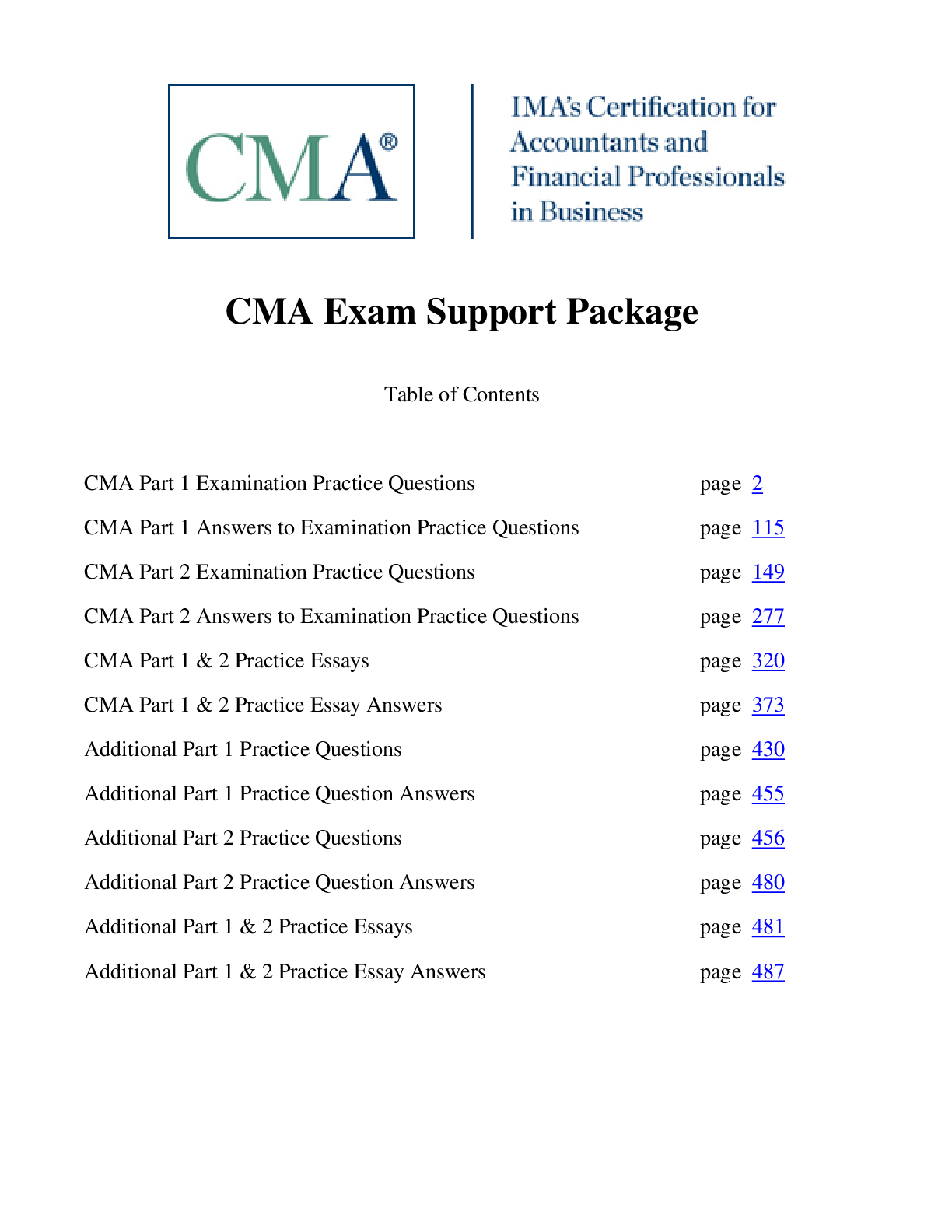
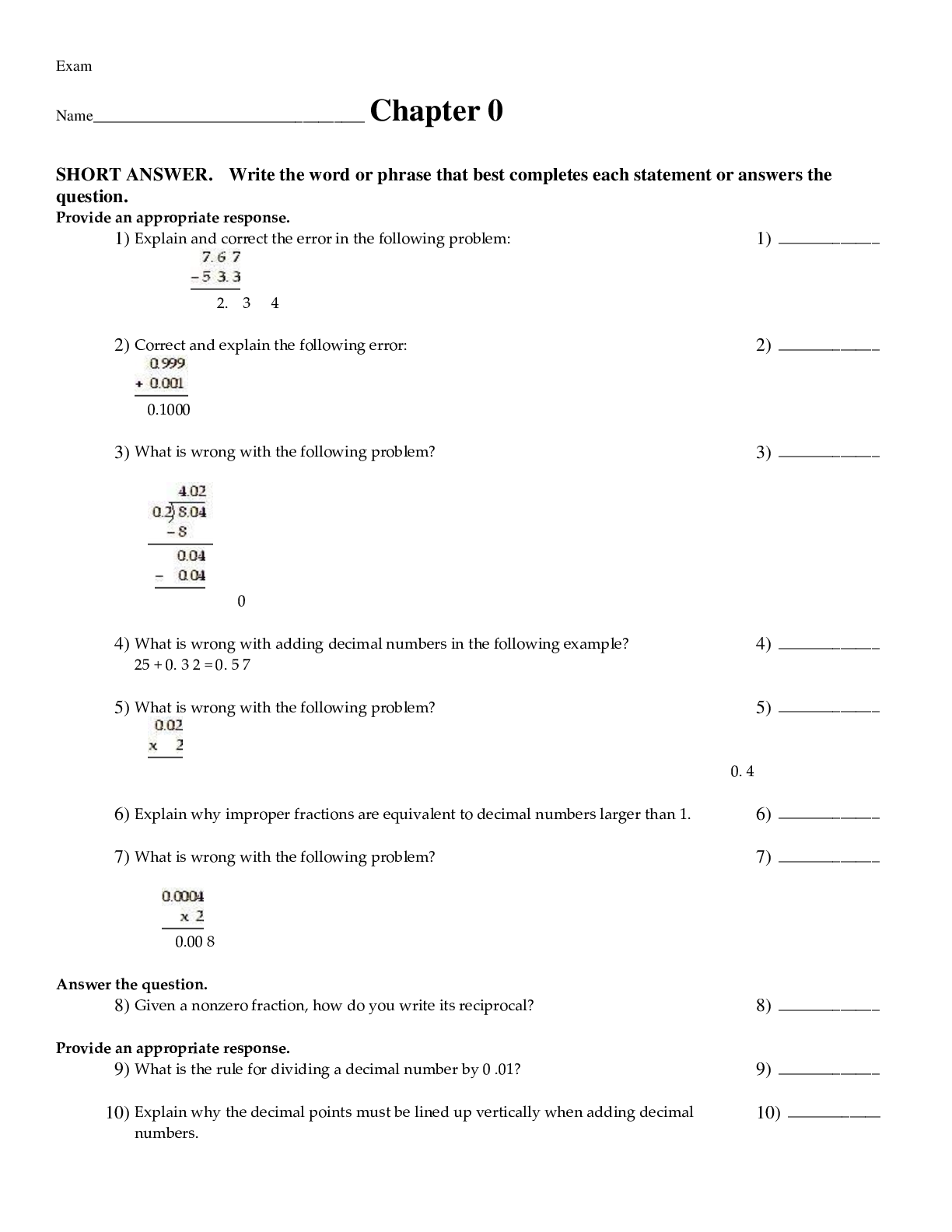


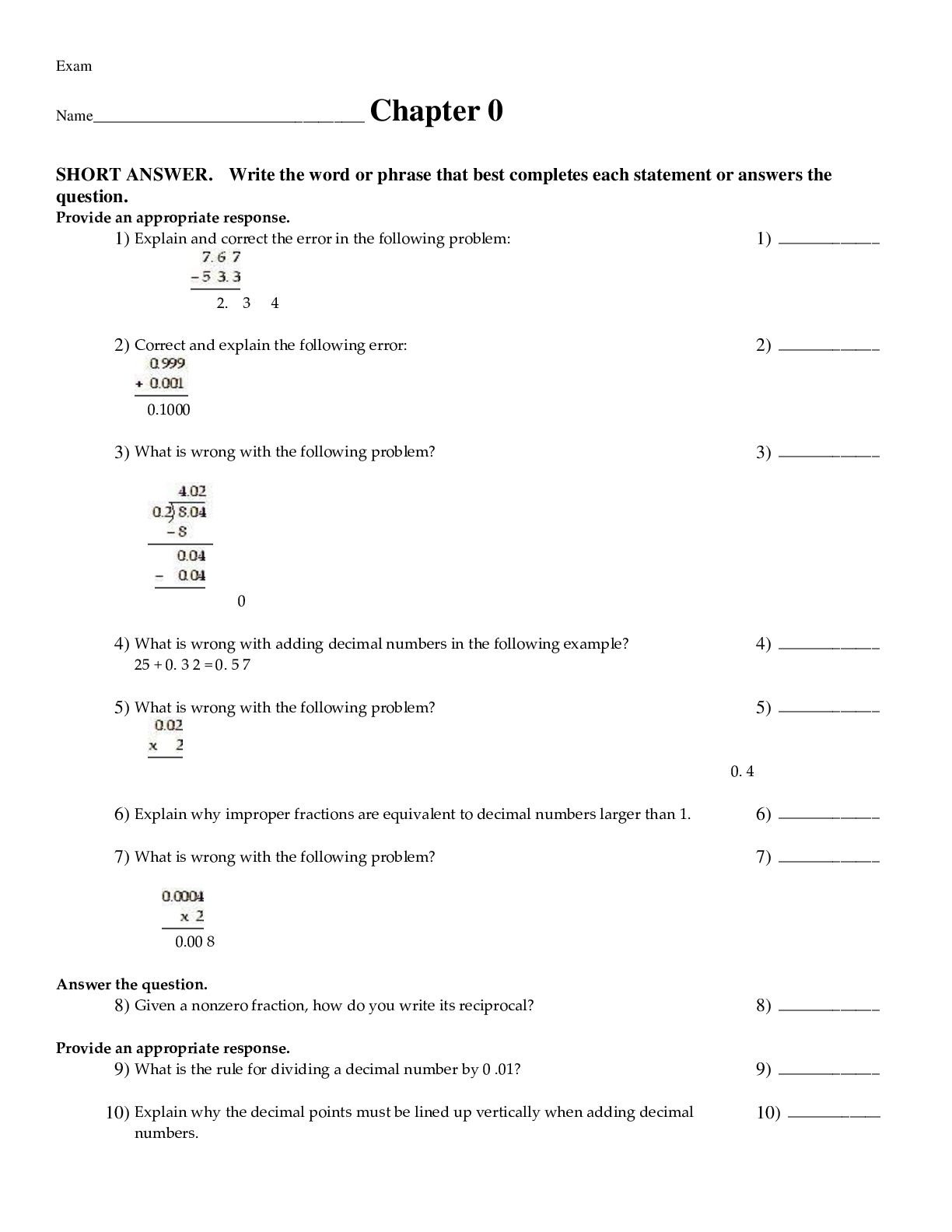




.png)
